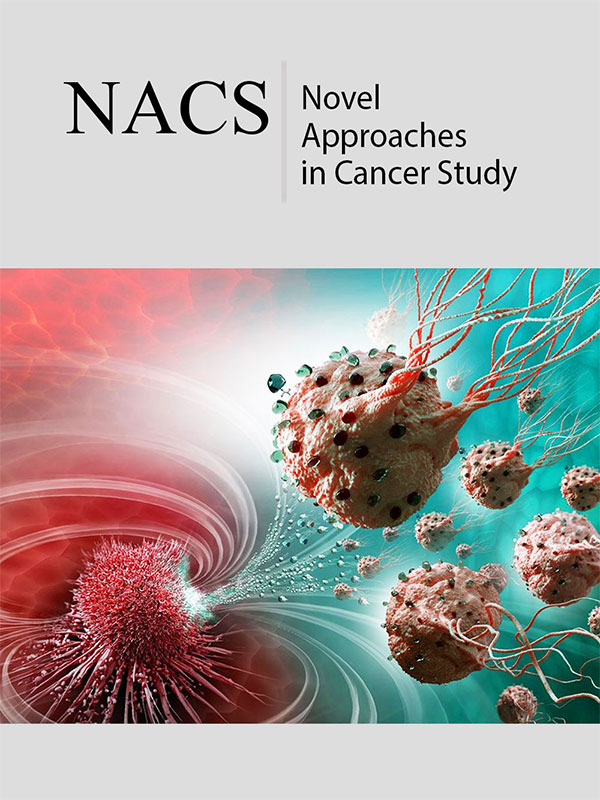- Submissions

Abstract
Novel Approaches in Cancer Study
The Effects of Radiation on Cancer Immunology
-
Open or CloseLyna Pham1a, Ava Wang1b, Chikezie O Madu2 and Yi Lu3*
1aDepartments of Biology and Advanced Placement Biology, White Station High School, Memphis, TN 38117, USA, lynahx@gmail.com
1bDepartments of Biology and Advanced Placement Biology, White Station High School, Memphis, TN 38117, USA, daomiwang@gmail.com
2Departments of Biology and Advanced Placement Biology, White Station High School, Memphis, TN 38117, USA, maduco@scsk12.org
3Department of Pathology and Laboratory Medicine, University of Tennessee Health Science Center, Memphis, TN 38163, USA, ylu@uthsc.edu
*Corresponding author:Yi Lu, Department of Pathology and Laboratory Medicine, University of Tennessee Health Science Center, Cancer Research Building, Room 258, 19 South Manassas Street, Memphis, TN 38163, USA, Email: ylu@uthsc.edu
Submission: April 02, 2020 Published: May 14, 2020

ISSN:2637-773XVolume4 Issue4
Abstract
Cancer immunology largely depends on the effects of radiation therapy (RT). RT is predominantly focused on inducing tumor cell death, triggering anti-tumor immune responses, and generating DNA damage. Although the immune system has the ability to recognize and reject specific tumors, some tumors acquire characteristics that allow them to evade immune destruction by expressing a highly immunosuppressive microenvironment and decreasing their immunogenicity. Exposing the tumor site to radiation stimulates tumor-specific antigens, making them perceptible to the immune system and stimulating the priming and activation of cytotoxic T cells. In addition, tissue damage caused by radiation applied to the tumor microenvironment moderates a release of inflammatory cytokines that assists in leukocyte infiltration to the damage site and promotes an adaptive immune response. Furthermore, RT can reinforce tumor cell susceptibility to T cells, enhancing their eradication and apoptosis. Cancer cell apoptosis can manifest in the form of immunogenic cell death (ICD) or non-immunogenic cell death (non-ICD). While non-immunogenic cell death fails to elicit an immune response, immunogenic cell death specializes in antitumor immunity by modifying the surface composition of the cell and releasing soluble mediators, such as danger signals, to prompt elimination of the tumor cells. With advancement in understanding of immune cell types and pathways involved in the immune response, numerous preclinical studies have suggested that a combination of radiation and immunotherapy could lead to a propitious strategy against the challenges of cancer treatment. This paper examines the remedial adjustment of tumor immune responses and how it synchronizes efficiency and resilience to RT as well as its immunologic consequences.
 a Creative Commons Attribution 4.0 International License. Based on a work at www.crimsonpublishers.com.
Best viewed in
a Creative Commons Attribution 4.0 International License. Based on a work at www.crimsonpublishers.com.
Best viewed in 







.jpg)






























 Editorial Board Registrations
Editorial Board Registrations Submit your Article
Submit your Article Refer a Friend
Refer a Friend Advertise With Us
Advertise With Us
.jpg)






.jpg)














.bmp)
.jpg)
.png)
.jpg)










.jpg)






.png)

.png)



.png)






